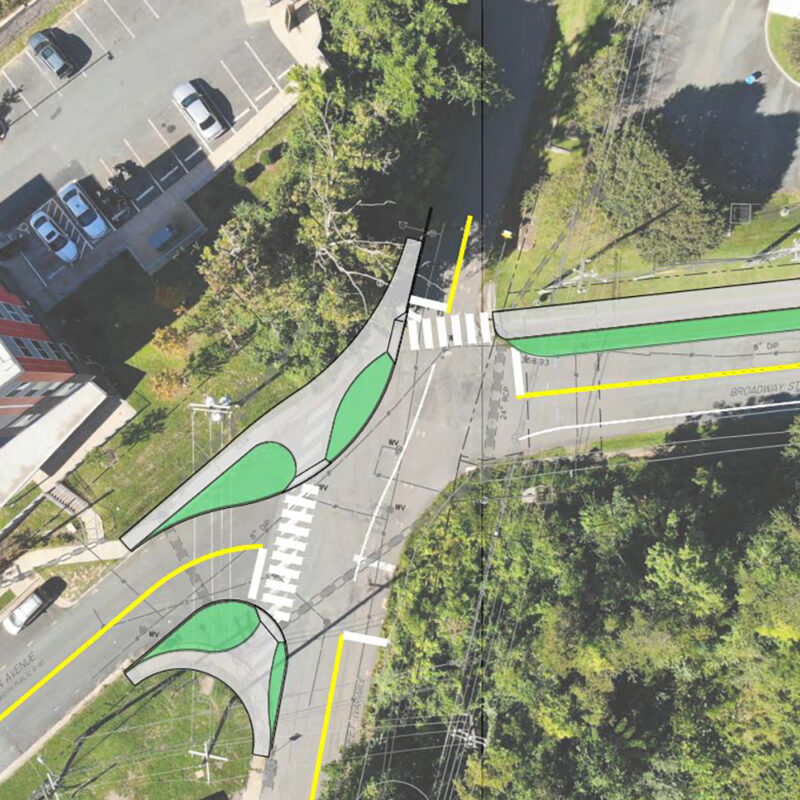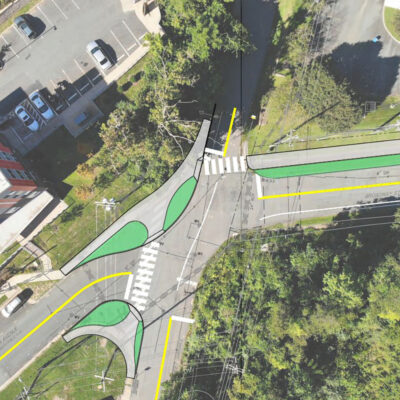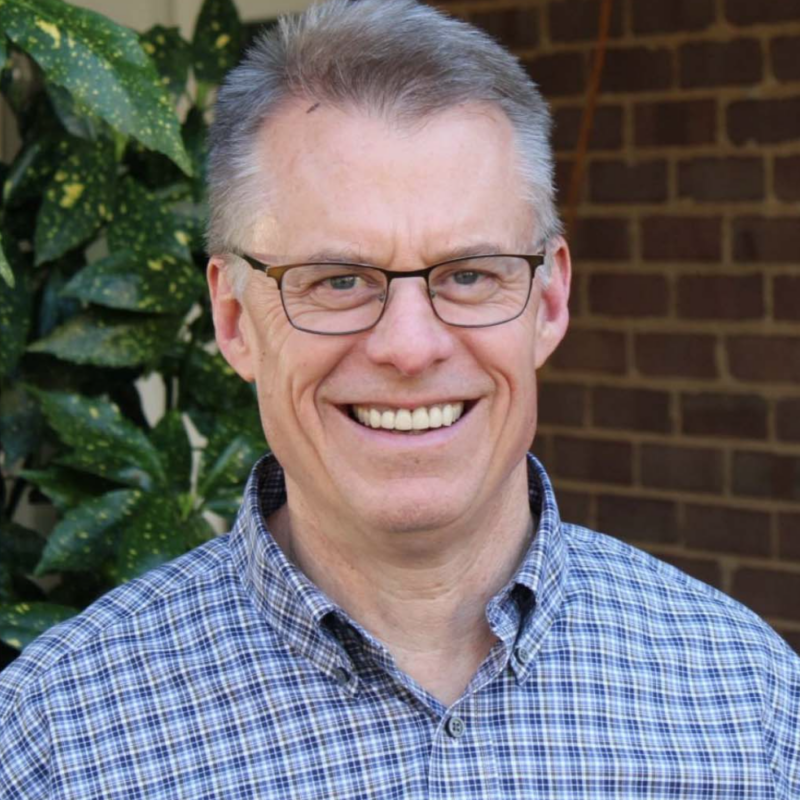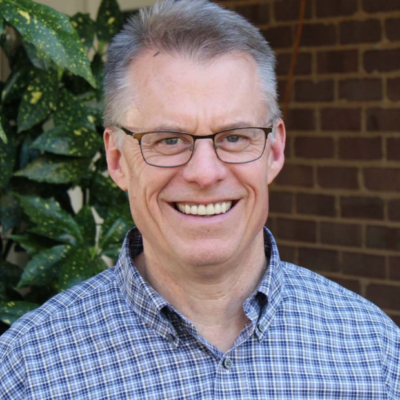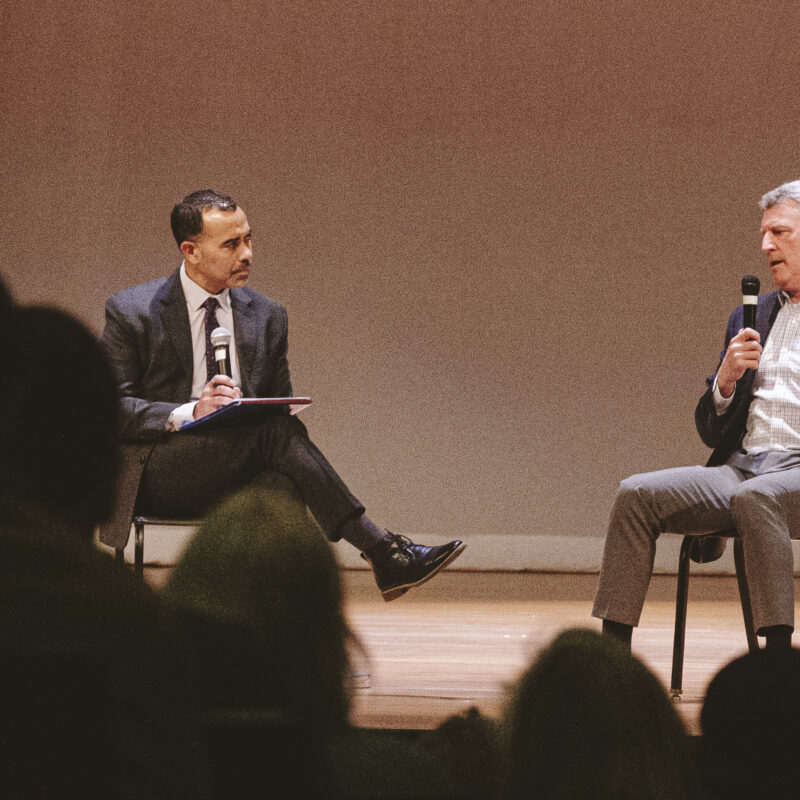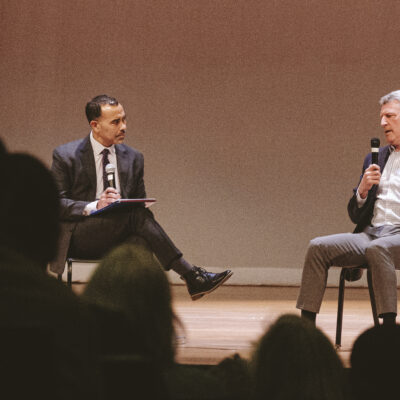Robert plays a flute. Standing in front of the Jefferson Theater, he places the thin metal instrument up to his lips and blows, the sweet sounds wafting up and down the Mall. Inside a black fedora on the ground are five copper pennies. “I need to get a new shirt,” he says. “And something to eat.” Like many a performer on the Downtown Mall, Charles is trying to scrape something together to live on, on this rainy night, and is failing miserably. “I play all over America,” he says. “What’s the most you’ve ever made?” I ask. “One hundred and thirty dollars,” he replies. I look down at the lonely pennies as the rain splashes a few feet away, keeping would-be patrons away.
 A regular on the Downtown Mall, Floyd the banjo player sticks to the same old song and dance for meager bucks. |
Were it warm and dry, Robert would be joined by the slew of buskers that ply their trade all over the Mall, following a tradition that dates back to the early days of mankind. In the Middle Ages, traveling minstrel shows hopped from town to town, counting on villagers to contribute to their well-being. Of course, the serfs and peasants had little else to entertain them, so they turned out to see and listen to the bards trying to wrest their money from them. Today, buskers must compete not only with all the entertainment options at everyone’s fingertips but with each other too.
Down by Miller’s, another Robert can be found strumming his guitar and singing Bob Dylan and Willie Nelson tunes and some of his own. He is trying to save money to make a CD of them. “I try to play as unobtrusively as I can,” he explains. Across from him people dined at outdoor tables. Some days he might only make $5 or $10 dollars, but occasionally more, $60 being his high. When he is not playing, the dry plasterer-by-trade shows up at an employment agency in the early morning to try and find work.
Over by Bank of America, Floyd picks a banjo, often around lunchtime. When I catch up with him one morning around 11am, he sits on a corner by one of the bank’s monstrous columns playing a variation on “The Yellow Rose of Texas.” Looking to be in his mid-60s, he explains that he usually plays such old standards as “Red River Valley,” “The Tennessee Waltz,” and “The Battle Hymn of the Republic.” “That’s a Yankee song, so I can’t play that too much,” he says in a Southern brogue. His case is open on the ground, with pictures of Bill Monroe and Earl Scruggs taped on its inside. It is empty. When I come back by a few hours later there are only 10 quarters, so I drop $2 in, giving the loose change a little company. “Will you be out here tomorrow?” I ask. “Depends on how I feel,” he says.
With long white dreadlocks and blood-soaked eyes, Dave is easily the most recognizable of the Mall’s buskers. Before I started working on this story, I would see him almost every time I went out, planted on a bucket, blowing his harmonica. When he’s not there, he can often be spotted at the bar in Miller’s, hunched over a beer, compliments of whomever dropped money in his container. In the last few weeks, Dave has been strangely absent, and truth be told, to my ears, he has sounded feeble as of late, the notes issuing from his lungs not as strong and demanding as they used to be. Where was Dave? No one at Miller’s seemed to know. I feared the worst. “He’s probably off on a sojourn,” someone said, “he’ll be back.” I hope so.
